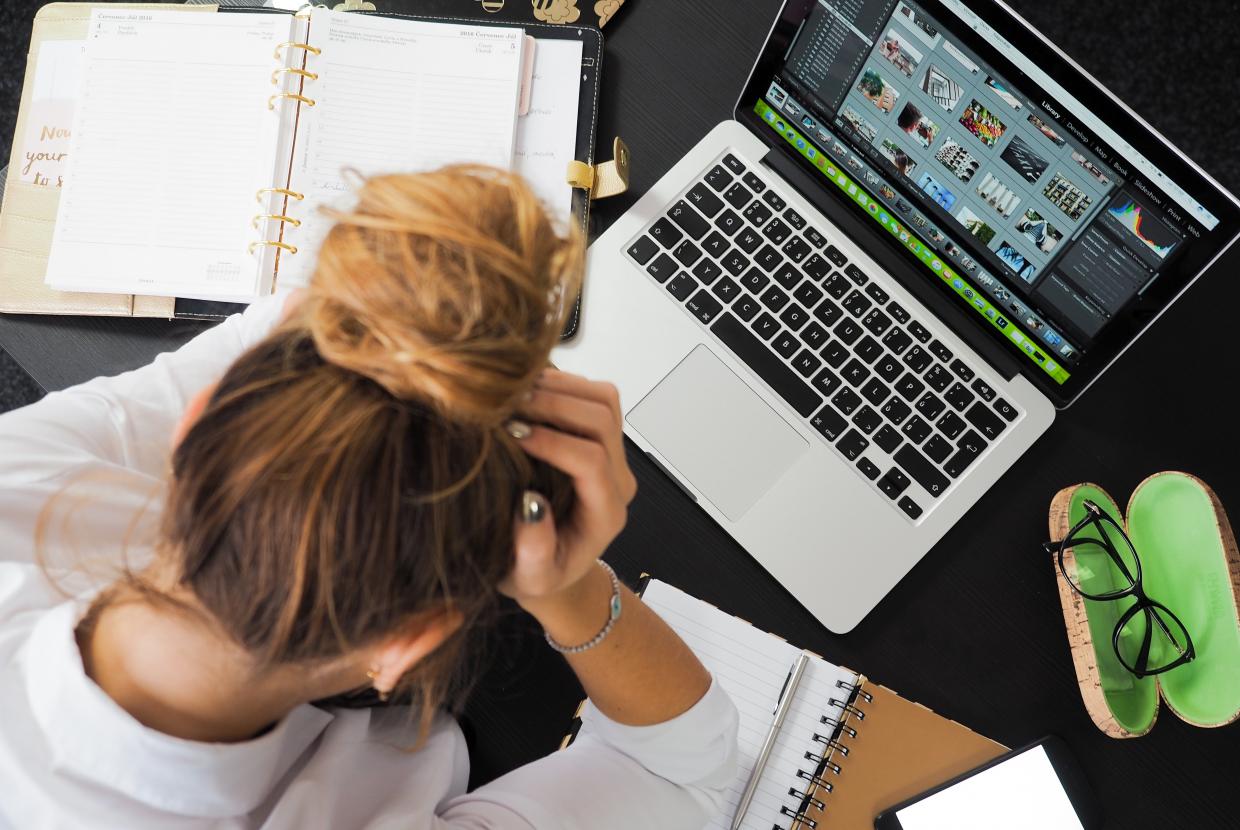Working From Home: Looking After Your Eyes
Workplace HealthWorking from home is, of course, a completely different work-life balance. Before you may have gone for a walk on your lunch break, sat and chatted with a colleague, now you may be spending a lot of time in front of screens.
That, of course, is inevitable in lockdown, and screen time can be a great way to take your mind off work and the pandemic. It's important, though, to make sure you're also looking after your eyes.
Dry eyes have been a very common problem in lockdown, largely due to the increase in screen time for everyone. When you stare at a computer screen, you blink 2/3 less often than normal. Between blinks, your eyes dry up - this forms dry patches in your eyes which can become very uncomfortable.
To combat this, we would recommend you employ the 20-20-20 rule. This means that to prevent your eyes from drying out, every 20 minutes you should take a break from looking at your screen and look at something around 20 feet away, for at least 20 seconds.
When you are in your home environment and decide to take a break, it's easy to choose to put on the TV, or flick through your phone and browse social media. Unfortunately, this can just exacerbate the problem of dry eyes, so employ the 20-20-20 rule to allow your tears to do their job and give your eyes the rest they need. On busier days and when chasing deadlines, it can be hard to force yourself to take regular breaks. Remember, though, that discomfort in your eyes can make concentrating on your work more difficult, and taking these breaks can help you stay focused.
If you do find yourself suffering from dry eyes, it is worth seeking expert advice. Your optometrist is there to talk to, and lots of optometrists are finding new ways of communicating with their patients at the moment, even for non-emergency issues. Often they will be able to prescribe you artificial tears as treatment, so look into how you can contact your optometrist and ask them for advice.
One of the biggest adjustments we've had to make when working from home is putting together a home office - this blog was written on a repurposed kitchen table. While it can be tough to find a space where you can work comfortably at home away from distractions, be kind to yourself and keep in mind that your environment shouldn't put extra strain on your eyes.
- Make sure to work in a well-lit room, preferably with natural light and a window. In dark, dimly-lit spaces, staring at a bright screen can put extra strain on your eyes.
- Make sure not to sit too far away from, or too close to your screen. Generally, the optimum distance from your eyes to your screen is between 20 and 40 inches. However, lots of us are using makeshift screens that may be bigger or smaller than we would normally use, so you should adjust to what is comfortable based on your screen size.
- Position your screen just below eye level. Your screen should be directly in front of you, rather than off to the side, and the top of your screen should be in line with your eyes.
- Avoid screen-reflection. Your screen should have as little glare as possible, so position your monitor to avoid reflection from overhead lighting and sunlight.
If you have followed all of this advice and are still experiencing eye strain, despite taking regular breaks, you should contact your optometrist. They will be able to offer you support and may be able to arrange a consultation if your symptoms have an essential need for treatment.
If your optometrist has recommend you wear glasses when looking at computer screens, make sure that you do. If you don't have a suitable pair that are comfortable for computer screen work, consult your optician to find out your options.
The key when working from home is to be kind to yourself and your eyes. Give yourself the regular breaks that you need, and allow your eyes to look at things other than a screen. Whether you feel like you're working from home or living at work, it is possible to get the right balance and keep your eyes healthy.









































